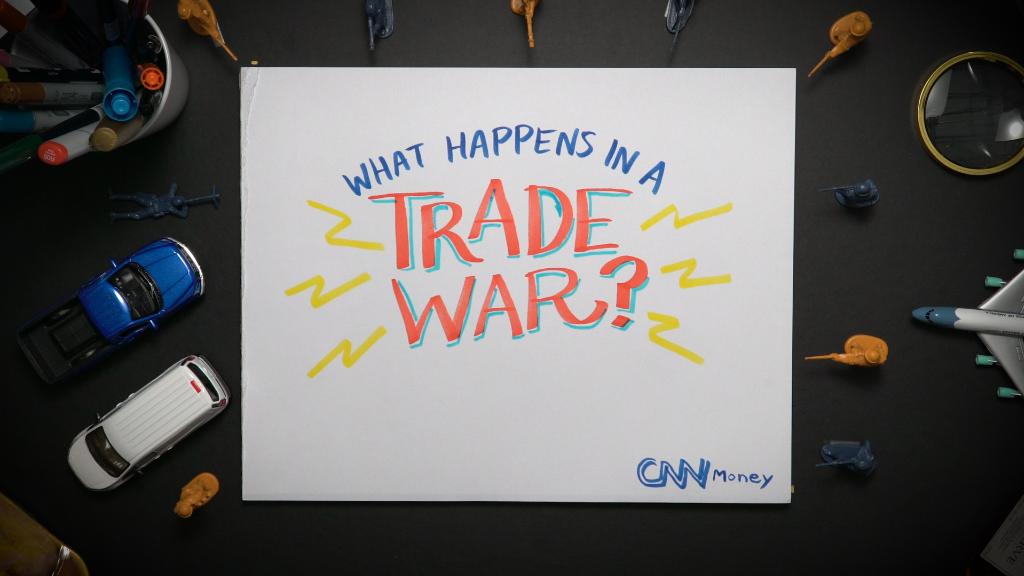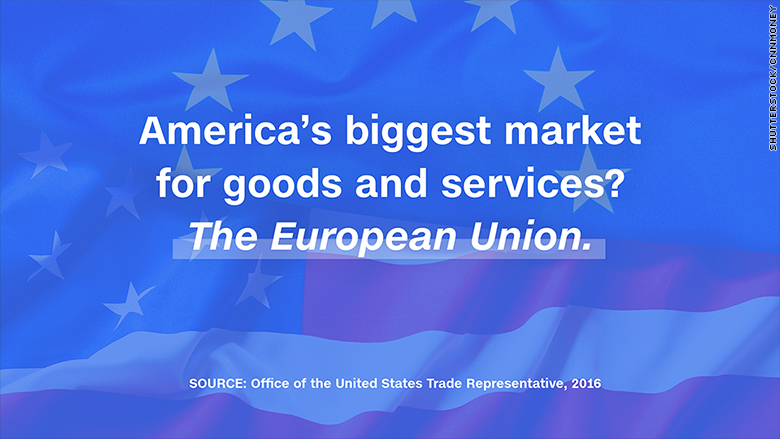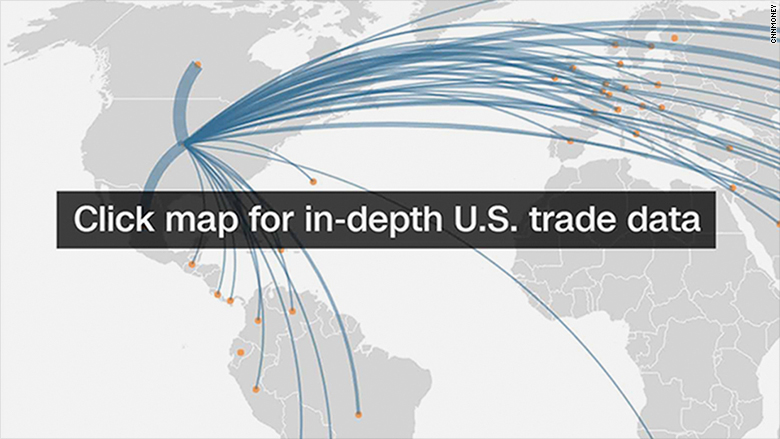
President Donald Trump has embarked on a visit to Europe that will bring the American leader face to face with vocal critics of his trade policies.
Trump has imposed steep tariffs on goods from the European Union, and he has recently repeated threats to go after the bloc's auto companies next. Europe has fired back with tariffs of its own.
The conflict risks fraying what is the world's most important business link, and it promises to be on the agenda when Trump meets German Chancellor Angela Merkel and French President Emmanuel Macron on Wednesday. He's also due to meet UK Prime Minister Theresa May on Friday.
Big trade
Trade between the United States and European Union is worth over $1.1 trillion a year — the largest bilateral relationship anywhere in the world.
US goods and services worth $528 billion were sold into the European Union last year, according to the US Census Bureau.
A lot of business flows in the opposite direction, too. According to US data, Europe sold goods and services worth $629 billion to the United States last year.
The most valuable trade between the two markets is in machinery and transportation equipment, followed by chemicals, according to the European Commission.
The United States has a trade deficit of $101 billion with Europe, according to US data.
EU data paint a similar picture of the relationship. The bloc estimated its trade surplus with the United States was roughly €110 billion ($130 billion) in 2016.
The trade imbalance has been a frequent rhetorical target for Trump. He said in tweet on Tuesday that the European Union "makes it impossible for our farmers and workers and companies to do business."

Small tariffs
Trump has complained about EU trade barriers, but the average tariff charged on both sides of the Atlantic islow.
World Trade Organization data show that goods shipped from the European Union to the United States are charged an average tariff of 1.4%. It's 1.9% for goods going the other way.
Both sides do have high tariffs on particular items, but they're not the norm.
The European Union, for example, charges a 10% tariff on cars imported from the United States. But 85% of cars assembled in the United States and sold in Europe are exempted because they contain European parts.
"It is true that we have a slightly higher tariff on cars than the Americans ... But they have much higher [tariffs], for instance, on trucks ... on shoes, on clothing. Overall the tariffs between us are small, but there are peaks," EU Trade Commissioner Cecilia Malmström told CNN last month.

Balanced investments
According to EU estimates, the bloc's direct investment in the United States stood at €2.7 trillion ($3.2 trillion) in 2016. US direct investments in the European Union are nearly as large.
The exchange underpins what the European Union calls the "most integrated economic relationship in the world."
European automakers including BMW (BMWYY), Volkswagen (VLKAF) and Mercedes, which is owned by Daimler (DDAIF), all have major factories in the United States. Top American banks and financial services companies have a significant presence in London.
What's next
Trump's decision to puttariffs on imported steel and aluminum have already sparked retaliatory action from the European Union.
The next front in the trade conflict could be cars. Trump has threatened to impose tariffs of 20% on European auto exports to the United States.
Related: Trump had a chance to cut Canada's dairy tariffs. He walked away
Cars worth €38 billion ($44 billion) are shipped each year from the European Union to the United States. Europe could retaliate with new tariffs on US products including chemicals, aerospace and agricultural products.
Read again Europe and the US have the world's most important business ties : https://ift.tt/2uaLbAJBagikan Berita Ini















0 Response to "Europe and the US have the world's most important business ties"
Post a Comment